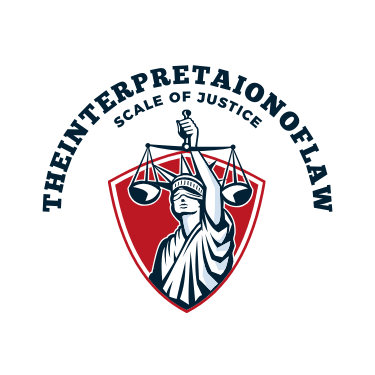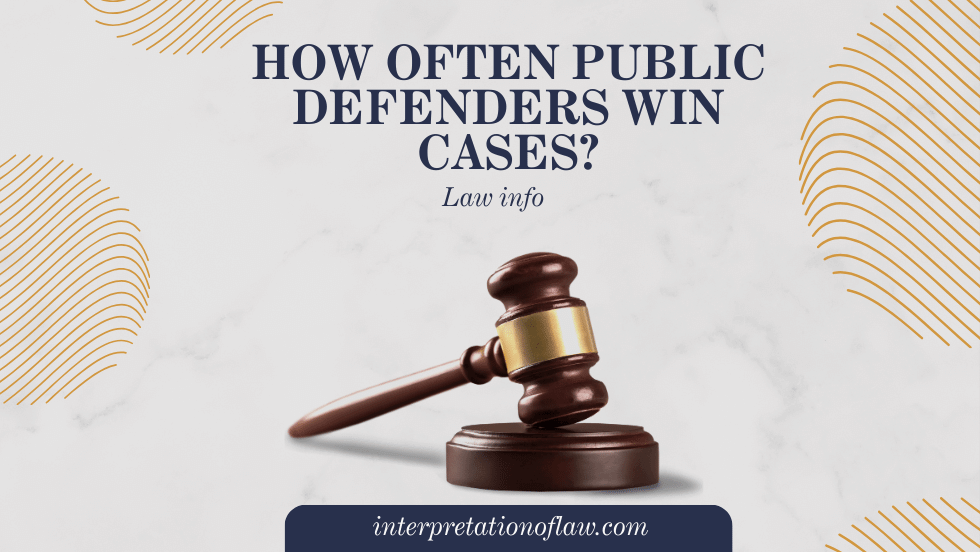Public defenders are lawyers assigned to represent individuals who can’t afford an attorney in criminal cases. They play a crucial role in the justice system, providing legal representation and ensuring fair trials for defendants who may not have access to proper legal resources. However, there has been much debate surrounding public defenders’ effectiveness and ability to win cases for their clients.
What is a Pubic Defender?
A public defender is a lawyer whom the government employs to provide legal representation for individuals who cannot afford an attorney. They are typically assigned to defendants in criminal cases and may also represent clients in civil cases, such as child custody hearings.
Factors Affecting Public Defender Success
Several factors can impact the success rate of public defenders. These include:
- Case overload: Public defenders often have large caseloads and may need more time to dedicate to each case, affecting their ability to prepare for trials thoroughly.
- Limited resources: Public defenders typically work with limited resources compared to private attorneys, which can hinder their ability to conduct investigations and hire expert witnesses.
- Experience and expertise: Public defenders may have varying experience and expertise, impacting their success in handling more complex cases.
- Bias against public defenders: Some jurors may hold a bias against public defenders, believing they are not as competent or dedicated as private attorneys. This can affect the outcome of a case.
How often do public defenders win cases?
While it may be tempting to “hope for the best” when your future is at stake, it’s crucial to understand the likelihood of success with a public defender. Avoid harboring false hopes or unrealistic expectations if you are found guilty.
Consider these statistics that shed light on the gravity of your situation and the potential for misplaced hope:
- Public defenders win 61% of their jury trials. This figure is understandable, given their higher caseload compared to prosecutors.
- Only three percent of cases that go to jury trials result in a “Not Guilty” verdict.
- In contrast to public defenders, prosecutors win 95% of their jury trials. Yes, that number is correct. This underscores the importance of having a skilled and experienced criminal defense attorney by your side from the outset. Not all attorneys are equal in their abilities and dedication.
While a 61% win rate may be low for public defenders, they can strive for better results than winning some cases but losing most. Some argue that if a case reaches a jury trial, the outcome may be influenced by existing beliefs about guilt or innocence among jurors, regardless of the evidence presented.
Remember, having a competent legal advocate who can passionately defend your case is crucial.
Public defender success rates
The remarkable improvement in success rates can be largely attributed to the efforts of public defenders. While other defense attorneys experienced a modest increase from 12% (2008-09 through 2018-19) to 13% (2019-20 through 2022-23), public defenders saw their success rate nearly double, skyrocketing from 18% to 35%. This means the gap between public defenders and their private-bar counterparts has significantly widened in recent years.
Pros and cons of using a public defender
Like any other profession, there are both advantages and disadvantages to working with a public defender. Some potential pros of using a public defender include:
- Cost-effectiveness: Public defenders provide their services for free, making them a more affordable option for those who cannot afford to hire a private attorney.
- Legal expertise: Public defenders are experienced in criminal law and have knowledge of the local court system, which can benefit their clients’ cases.
- Familiarity with prosecutors and judges: Public defenders often work in the same courtrooms as prosecutors and judges regularly, allowing them to build relationships and potentially negotiate better outcomes for their clients.
On the other hand, some potential cons of using a public defender include:
- Limited availability: Public defenders are often overworked and may have less time to dedicate to each case than private attorneys.
- Resource limitations: As mentioned earlier, public defenders may need more resources, affecting their ability to defend their clients strongly.
- Potential bias: Some individuals may view public defenders as less competent or dedicated than private attorneys, which could impact the outcome of a case.
Which case gave us public defenders?
The landmark case establishing the right to a public defender in the United States was Gideon v. Wainwright in 1963. Clarence Earl Gideon was accused of felony theft in Florida but lacked the funds to hire an attorney. Upon his request for a lawyer to be provided for him, the court declined, stating that it was only obligatory under state law to appoint counsel for poor defendants in capital cases.
Gideon represented himself and was subsequently convicted, but he filed a handwritten petition to the U.S. Supreme Court from his prison cell. The Supreme Court ruled unanimously that state courts are required under the 6th Amendment of the Constitution to give counsel in criminal cases for defendants unable to afford their attorneys, thereby guaranteeing the right to a public defender. This decision profoundly changed the criminal justice system, ensuring that everybody had access to legal representation regardless of their financial status.
How powerful is public defenders?
The Influence and Limitations of Public Defenders
Public defenders hold substantial sway within the justice system due to their role in upholding the constitutional right to counsel, regardless of a defendant’s financial status. Their influence manifests in several ways:
- They ensure the legal system operates within the bounds of fairness and justice by advocating for the rights of the accused.
- Public defenders are often well-versed in criminal law due to the volume and variety of cases they handle.
- They can influence case outcomes through their legal acumen and negotiation skills.
However, their power is not absolute and can be circumscribed by factors such as overwhelming caseloads, inadequate funding, and systemic constraints. These challenges can influence on their efficacy and the attention level they can provide each client. Despite these limitations, the function of public defenders is a cornerstone of the justice system, contributing to its integrity and the protection of individual rights.
The creation of public defenders
The concept of public defenders originated from the Sixth Amendment to the United States Constitution, which guarantees the right to legal counsel in criminal cases. The landmark case of Gideon v. Wainwright in 1963 solidified this right and is often credited with creating public defender offices nationwide.
How to choose a public defender?
If you cannot afford a private attorney and are assigned a public defender, it’s important to ensure you have open and honest communication with them. You can also research your area’s public defender’s office and inquire about their experience and success rates. Ultimately, building a strong working relationship with your public defender and trusting that they are working in your best interest is important.
Public Defender vs. Private Attorney: Analyzing the Statistics
When comparing public defenders’ success rates and outcomes versus private attorneys, several intriguing statistics emerge. According to a recent Bureau of Justice Statistics study, defendants represented by private attorneys were less likely to be convicted than those with public defenders. Specifically, the conviction rate for those with private counsel was around 71%, compared to 75% for those with public defenders.
Additionally, when convictions occurred, clients of private attorneys were more likely to receive sentences of probation rather than incarceration—33% versus 24%, respectively.
However, it’s important to note that these statistics do not necessarily tell the whole story. The nature of the cases handled by public defenders, often assigned to clients with more challenging circumstances or charges, can contribute to these disparities.
Furthermore, defendants with private attorneys may have additional resources, such as the ability to pay for expert witnesses or conduct more extensive pre-trial investigations, which can influence case outcomes. Despite these differences, the dedication and professionalism of public defenders should not be underestimated, as they continue to provide a critical service to defendants in need.
FAQs
Q: What state has the best public defenders?
A: It is difficult to determine which state has the best public defenders as success rates can vary depending on several factors such as resources and caseloads. However, some states may have more public defender offices than others.
Q: Can a public defender get a case dismissed?
A: While it is not common, public defenders have the same ability as private attorneys to seek dismissals for their clients based on lack of evidence or other legal grounds.
Q: Do public defenders choose their cases?
A: Public defenders are assigned cases by the court and cannot choose which cases they take on. However, some public defender offices may prioritize certain cases depending on their resources and expertise.
Final Words
In conclusion, public defenders play a crucial role in ensuring the justice system is fair and just for all individuals, regardless of their financial status.
While they may face challenges such as limited resources and overwhelming caseloads, their impact on the criminal justice system cannot be understated. It is important to understand the history and limitations of public defenders in order to appreciate their role in the legal system fully.
So, if you or someone you know is assigned a public defender, it’s important to communicate openly and work together to achieve the best possible outcome for the case.
References
https://en.wikipedia.org/wiki/Public_defender
https://en.wikipedia.org/wiki/Public_defender_(United_States)
https://www.publicdefenders.nsw.gov.au/
https://bjs.ojp.gov/content/pub/ascii/dccc.txt
https://www.nytimes.com/interactive/2019/01/31/us/public-defender-case-loads.html

Carter Wilson is a licensed lawyer with over 10 years of experience in various legal fields. He is passionate about making law accessible to the general public and helping individuals navigate through complex legal matters.

